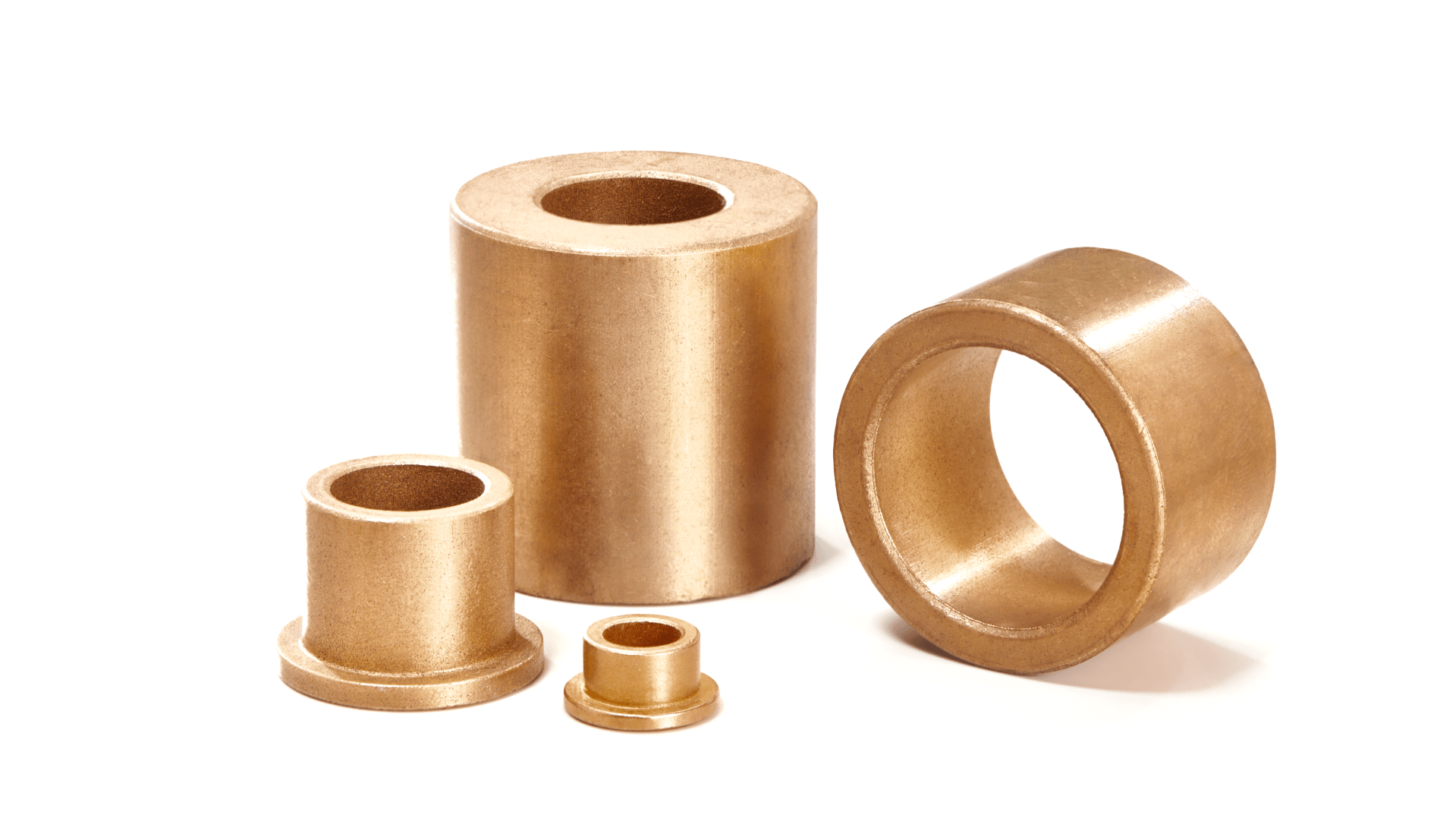TECHNICAL INFORMATION ON SINTERED BRONZE PLAIN BEARINGS
Characteristic is the nature of the material with microscopic pores, in which liquid (oil - temperature range up to 80°C) or solid lubricant (MoS2 - temperature range up to 300°C) is placed, depending on the requirements. Standard materials are Sint-A50, Sint-A51 and Sint-B50.
MAIN APPLICATION CHARACTERISTICS OF SINTERED BEARINGS
High friction speed at low load.
The bearings - both cylindrical and collar - are available in a wide range of dimensions and are supplied from our warehouse ready for installation.
The starting material for sintered parts, such as plain bearings, bushings or other molded parts, is metal powder made of iron, bronze or other metals. These powders are formed into parts in dies under high pressure and then sintered. During the sintering process, the parts are heated to a temperature just below their melting point. The material particles melt together as a result of plastic softening of their surfaces.
The bearing bushings are manufactured according to DIN 1850 part 3. They are available according to list, special sizes and drawing parts can be manufactured on customer request.
In addition, we supply solid pieces of sintered and MoS2 bronze up to 80mm Ø and length each - also in special dimensions on request - for further processing, as well as sintered bronze silencers.
INSTALLATION INSTRUCTIONS:
Installation must be carried out with the utmost care, as porous bearings can be deformed very easily. Press-fitting should be carried out with a press-fit mandrel, as this is the only way to maintain the greatest tolerance accuracy.
GUIDELINES FOR BEARING MAINTENANCE:
Self-lubricating bearings contain approximately 30 percent oil by volume. If stored improperly, e.g. on wood, in paper or in cardboard boxes, oil may be lost. Please leave the bearings in the aluminum foil or in the plastic bags until installation. This also protects the bearings against dust or other contaminants, which is very important for the proper functioning of the bearings.


